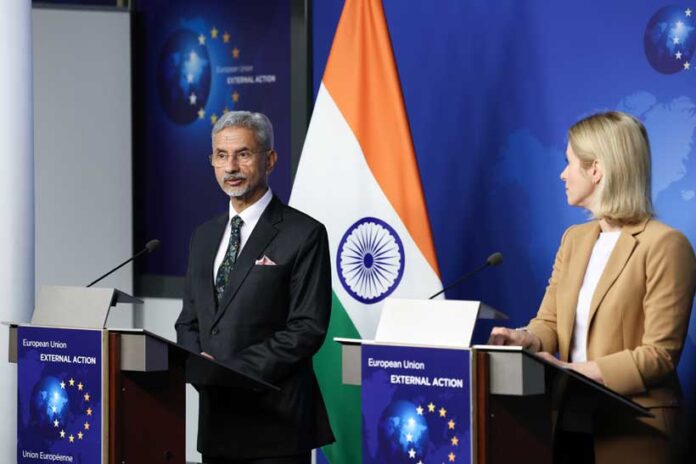India and the European Union agreed that sensitive issues including steel, automobiles, and the EU’s carbon border tax require further discussion before concluding their long-pending free trade agreement (FTA), New Delhi said on Wednesday. The talks took place in Brussels between Commerce Minister Piyush Goyal and European Commissioner for Trade and Economic Security Maros Sefcovic during Goyal’s October 26–28 visit.
Both sides reaffirmed their goal of finalising the FTA by end-2025, following guidance from Prime Minister Narendra Modi and European Commission President Ursula von der Leyen.
Negotiations, relaunched in 2022, have gained momentum since U.S. President Donald Trump’s re-election, as Brussels pushes to secure new trade deals with India, Mexico, Mercosur, and others.
India is seeking a “balanced and equitable” agreement that enhances market access while addressing regulatory challenges. Goyal described the talks as “productive and meaningful,” adding that the two sides explored “possible landing zones” on outstanding issues and agreed to finalise non-sensitive industrial tariff lines.
Why It Matters:
The India-EU FTA could become one of New Delhi’s most significant trade pacts, linking it with its largest trading partner bilateral trade in goods reached $137.5 billion in 2023/24, nearly 90% higher than a decade ago. However, differences over carbon levies, auto duties, and environmental regulations pose key hurdles, reflecting the broader challenge of aligning India’s industrial ambitions with the EU’s green standards.
The primary players include the Indian government, advocating for preferential access for labour-intensive sectors such as textiles and leather, and the European Union, aiming to uphold climate and regulatory commitments under its Carbon Border Adjustment Mechanism (CBAM). Businesses in both regions especially steelmakers, automakers, and exporters have a direct stake in how these issues are resolved.
What’s Next:
A technical team from the EU Directorate-General for Trade will visit India next week to develop potential solutions identified during the Brussels talks. Progress in these working-level discussions will be crucial to maintaining momentum toward a 2025 FTA deadline, with both sides seeking to balance trade liberalisation with environmental and economic security concerns.
With information from Reuters.


